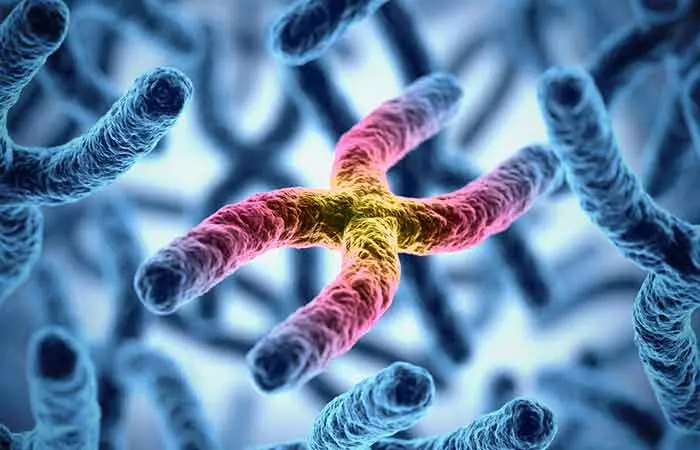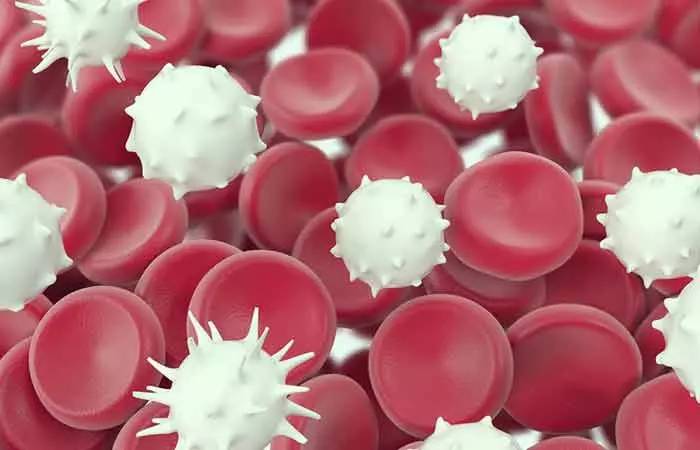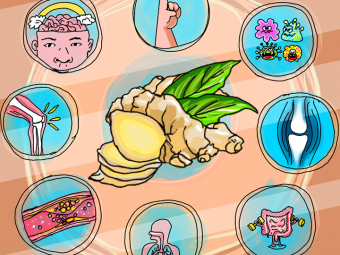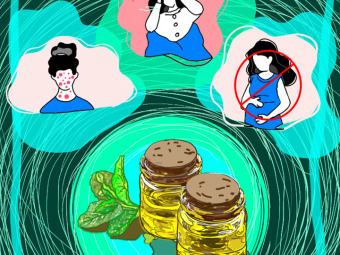6 Most Common Causes Of Miscarriage You Should Know About

Image: Shutterstock
When women, or couples, happen to suffer a miscarriage, they have only one simple question in mind – Why?
Miscarriages can be truly devastating events that nobody should ever have to go through. They take a heavy mental toll and come with potentially long term emotional consequences, such as guilt, fear, anger, and even depression. However, the most heartbreaking aspect of this tragic event is a mother’s struggle to understand just why she lost her child.
The feeble explanation hastily murmured by your doctor just doesn’t cut it. Nothing can truly ease the suffering of a parent who has suffered a miscarriage and demands to know why it ever occurred. According to an OB/GYN from Indiana’s St. Vincent Fishers Hospital, Dr. Elizabeth Nowacki, “When you think about a pregnancy, and you think about the beginnings of a human being forming and all the things that have to go perfectly, it really and truly is a miracle when it happens.”
She goes on to add, “You have two sets of genetic material coming together that have to divide, and sometimes things go wrong. The simplest way to think about it is that [miscarriage] is sort of nature’s way of making sure that a human being is compatible with life.”
Here’s a list of the six most common reasons, that, according to doctors, could cause a miscarriage:
1. Abnormalities In The Chromosomes
Nearly 6 out of 10 miscarriages are due to a mismatched chromosome or chromosomal abnormalities in the fetus. Chromosomes are thread-like structures in our cells that carry all our genetic information or genes. Think of a long strand of DNA just wound around till it becomes minuscule – that’s a chromosome. When either the sperm or egg has any problem lying in the chromosome during the formation of the embryo – a miscarriage can occur.
Not all chromosomal abnormalities result in miscarriages. For example, trisomy 21, where the fetus gets an extra copy of the chromosome number 21, results in the Down syndrome. Other disorders of the chromosome, however, make the fetus just incompatible with life, leading to a halt in its development.
2. Polycystic Ovary Syndrome
This condition happens to affect more than 10 million women a year in India. It is now becoming an increasingly frequent cause of miscarriages (1).
This hormonal disorder, where the ovaries develop fluid filled cysts and fail to ovulate regularly, results in women suffering from infrequent periods. There is also a spike in the levels of the male sex hormone testosterone. PCOS also happens to hinder the proper maturation of the uterine lining, which can lead to a miscarriage. Fortunately, there are treatments available to control this condition now.
3. Physical Complications
Not as common, but still a notable cause for miscarriages is certain physical obstacles that afflict a mother, such as uterine abnormalities like cervical incompetency or polyps or septum. In such cases, where the loss is due to a physical complication, the miscarriage will usually occur during the 2nd or 3rd trimester (2).
4. Lifestyle Choices
If the mother is plagued with self-destructive habits such as drinking alcohol during the course of her pregnancy, abusing drugs or even smoking, then it could ultimately lead to the loss of the child earlier on or even during the later course of the pregnancy.
5. Disorders Of The Immune System
Amongst most healthcare professionals, the topic of immunological disorders is still controversial. This is due to the fact that there is yet a lot more to be discovered regarding the mechanism or role they play in a miscarriage. Nevertheless, according to the ACOG, i.e. American College of Obstetricians and Gynecologists, some specific autoimmune disorders (read: where the body attacks itself) certainly do contribute towards miscarriages. This is especially the case with repeated miscarriages (3). The exact series of events that contribute to the loss due to the involvement of dysfunctional immunological factors are rather complicated. Dr. Nowacki, however, states that the best explanation is that “the body just doesn’t accept the pregnancy.”
6. Infections
Both viral and bacterial infections have been proposed as a cause for the recurrent loss of pregnancy. Most prominent suspects – mycoplasma and ureaplasma. Doctors routinely culture patients for these two pathogens and treat both the partners if one happens to be infected. Women who happen to be infected with Listeria (a bacteria-induced food poisoning) through the consumption of unpasteurized dairy, can also potentially miscarry due to a subsequent infection of the uterine lining that makes the womb inhospitable to the embryo.
Similarly, contracting a viral infection when pregnant, such as the Parvovirus B19 infection, can also result in a miscarriage during the 2nd or 3rd trimester. Once you’re infected with Parvovirus B19, you turn immune to the virus, hence it can’t cause repetitive miscarriages. Unfortunately, there is no vaccination available for this virus presently.
The loss of an unborn child never gets easy. Hopefully, trying to understand just what went wrong may help relieve some of the anger and confusion. If you or your partner is struggling with the aftermath of such an event, consult your doctor for support.





























